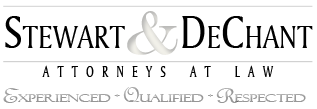Case Preparation
I. How do you deal with admissions made by the defendant in the file?
A. Ethical considerations.
1. Rule 3.4
A lawyer shall not in trial allude to any matter that the lawyer does not reasonably believe is relevant or that will not be supported by admissible evidence or by good faith belief if such evidence may exist.
2. Rule 3.7
A lawyer as a witness. A lawyer shall not act as an advocate at a trial in which the lawyer is likely to be a necessary witness unless it relates to an uncontested issue or the nature and value of the legal services. The exception is if the disqualification of that lawyer will work a substantial hardship on the client.
3. 8.4 Misconduct
It is professional misconduct for a lawyer to engage in conduct involving dishonesty, fraud, deceit or misrepresentation.
Duties to a client.
4. 1.4 Communication.
B. A lawyer shall explain a matter to the extent reasonably necessary to allow the client to make an informed decision regarding representation.
1. Promptly inform the client of any decision or circumstance with respect to which the client’s conformed consent is required.
2. Reasonably consult with the client about the means by which the client’s objectives are to be accomplished.
3. Keep the client reasonably informed about the status of the matter.
4. Comply as soon as practicable with reasonable request for information from the client.
II. How does 1.4 affect what you are looking for in a file in the case you are reviewing or in your own practice?
A. If you have made an error, the correct ethical practice is to inform your client of the error, advise the client what steps you will take to avoid or minimize any and all negative consequences of the error, give the client a right to choose another lawyer and/or ask the client for permission to continue to move forward with the case and reasons why you expect the error will or will not be consequential to the client and if consequential, how it will be consequential.
B. The ethical rules protect you in this communication with your client. It can have no adverse effect against you as it relates to your insurance if you are providing communication under Rule 1.4 as is your duty and obligation. Plus it ensures with the admission that your carrier does not take any bad faith defense on your behalf that may expose you to a trial on a case that should be settled or an overage judgment.
C. How do you use the rule as a sword and/or as a shield?
Failure to communicate is actionable.
It is a ground for recovery if an error is not communicated.






